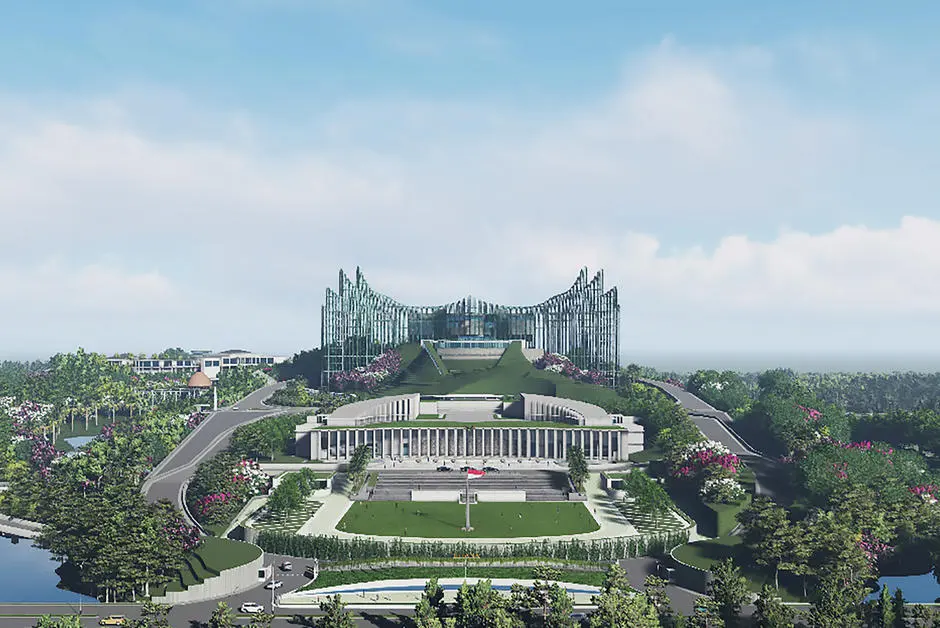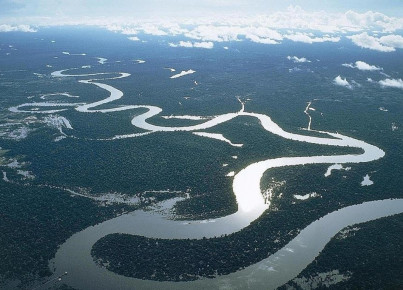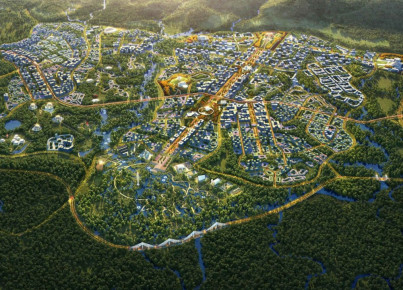The Indonesian government has officially decided that, starting in 2024, the new capital will be relocated to Borneo and named Nusantara, in an attempt to alleviate the current capital's congestion and overcrowding on the island of Java.
The rumor that Indonesia would relocate its capital from the congested megacity of Jakarta is not a new one. In fact, it has been in the news since 2017, when President Joko Widodo expressed his concern for the future of the city, which, home to 10 million people, has been suffering for years from overpopulation, flooding, pollution and is subsidence due to excessive groundwater extraction. Moreover, most of Indonesia's economic activity is concentrated on the island of Java, where the current capital is located. Two alternative proposals were initially put forward to solve these problems: move the capital city entirely, by creating a completely new planned city akin to the relocation of the Brazilian capital from Rio de Janeiro to the planned city of Brasilia in 1960 or maintain Jakarta as the official capital, but create a separate administrative center, following Malaysia's experiment when it moved its federal administrative center to Putrajaya.
The official decision then came in April 2019, with the announcement that Jakarta would no longer be Indonesia's capital, with a 10-year plan to move all government offices to a new capital. The latter will be located in Borneo, straddling two districts - Penajam Paser Utara and Kutai Kertanegara in East Kalimantan province, a two-hour flight from Jakarta. The capital will be built on 180,000 hectares of land already owned by the government, thus minimizing the cost of land acquisition. The area was chosen for two main reasons. First, because of the favorable geological conditions, which make earthquakes, floods and volcanic eruptions less frequent. The second reason is for political and economic reasons. In fact, the government would like to close the widening economic gap between Java and the other islands of the archipelago. To date, 54% of Indonesia's more than 260 million inhabitants reside in Java and 58% of the country's gross domestic product is produced on this island, despite being the smallest of Indonesia's five main islands.
The new capital will be called Nusantara, which translates as "archipelago" in Bahasa Indonesia. As for the timeline, despite some delays caused by the COVID-19 pandemic, it is estimated that the new city will be up and running in 2024, the year President Widodo completes his second five-year term. The Ministry of National Development Planning has estimated that the move will cost about 466 trillion Indonesian rupiah (about $32.7 billion), with the government planning to cover 19% of the cost. The rest is expected to come mainly from public-private partnerships, as well as direct investment from state-owned enterprises and the private sector. By some estimates, about 1.5 million people could move from Jakarta to the new capital. Many government agencies will obviously relocate, but the central bank and other economic agencies will remain in Jakarta.
Given the enormous scale of the project, the nation is still divided on the necessity of the relocation. Supporters share the president's concerns about Jakarta's worsening traffic congestion, air pollution, subsidence and high real estate prices - as well as the need to jumpstart the economy in the less-developed eastern parts of the country. On the other hand, critics say there has been a lack of proper public consultation on the project, while some environmentalists fear the move could accelerate the destruction of forests that are home to orangutans, bears and long-nosed monkeys, as well as increase pollution, given the already compromised situation due to coal mines and palm oil industries. In response, the government has assured that the plan is to keep the city compact, so as not to damage the surrounding tropical rainforests, and that half of the total 180,000 hectares allocated will be set aside for "green spaces." Meanwhile, also of concern is the impact this mega-project will have on Indonesia's public debt, which although among the lowest among ASEAN countries, has increased by almost 10 percentage points in the last two years.






